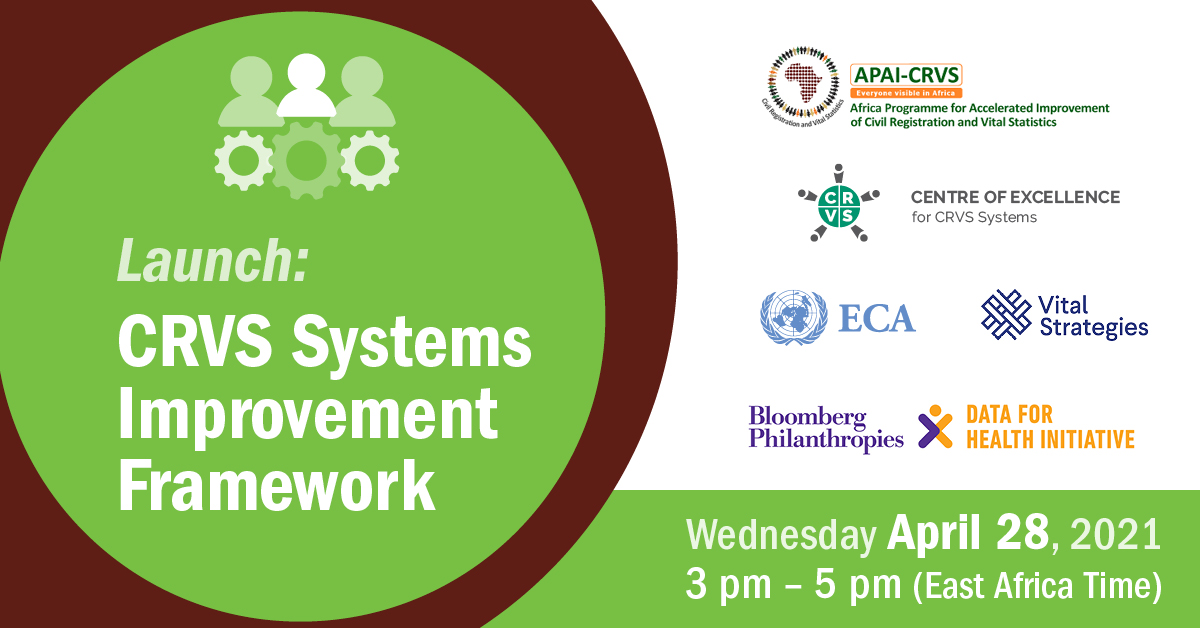
We are proud to have launched the new CRVS Systems Improvement Framework, which allows you to assess and improve your CRVS system and processes. This important tool is designed to help countries around the world understand the root causes for low or non-registration in CRVS systems. Easily adaptable for many scenarios through its modular design, it can help you improve your entire CRVS system or a particular business process. The framework is available in English and French. Translations to Spanish and Portuguese will also be available soon.
Why is the framework important?
CRVS systems are complex. They involve many people, agencies, and ministries. This can make them hard for people to understand and navigate. The CRVS Systems Improvement Framework simplifies the process.
When CRVS systems are simplified, more births, marriages, divorces, and deaths are registered. As a result, people get more access to the rights and services they deserve. Planners and policy makers also get better quality information they can use in their CRVS work.
How do I use the framework?
The framework guides you through a three-step approach. You’ll work together with stakeholders to map out registration processes in your country. You’ll also identify obstacles and strengths when it comes to your CRVS systems.
Here are the steps you’ll follow:
1. Assess, analyze, and redesign
2. Develop a strategic action plan
3. Implement, monitor, and evaluate
Coming soon! To help you make the most of the framework, you will have access to three complimentary eLearning modules in English. Each module is free, self-guided, and takes between 30 and 60 minutes to complete. These resources are currently in development and will be available soon.
Launching the framework
On April 28th, 2021 the United Nations Economic Commission for Africa, Vital Strategies and the Centre of Excellence for Civil Registration and Vital Statistics Systems co-hosted the launch of the Framework. More than 240 people attended the meeting chaired by Dr. Liya Mutale, Permanent Secretary, Home Affairs, Zambia. Mr Oliver Chinganya, Director, Africa Centre for Statistics UNECA made opening remarks. Mr William Muhvawa, UNECA presented the framework and shared that Angola, Burkina Faso, the Democratic Republic of the Congo, Kenya, Lesotho, Malawi and Zimbabwe are being supported to implement it already. Additional presentations were made by Dr. Martin Bratschi, Vital Strategies and Ms. Anette Forsingdal. Three countries also shared their experiences in implementing the Framework (Ethiopia, Lesotho and Rwanda). Participants hailed from 50 different government ministries and agencies across 28 countries in Africa. There were also participants from 14 other countries in Asia, the Americas and Europe and representatives from international organizations and non-governmental organizations. About one third of participants were women and about one third joined in French or Portuguese. Feedback from participants was overwhelmingly positive:
- 96% thought the Framework would be useful in their country.
- 88% thought their country could benefit from technical assistance to use the Framework.
- 97% noted their interest in following the eLearning course.
Download the presentations:
- By UNECA (PDF in English; en français, em português)
- By the Centre of Excellence (PDF in English, en français)
Watch the recording
Project partners
This project was led by the United Nations Commission for Africa (UNECA), with financial and technical support from Vital Strategies through the Bloomberg Philanthropies Data for Health Initiative, and the Centre of Excellence for CRVS Systems at the International Development Research Centre.